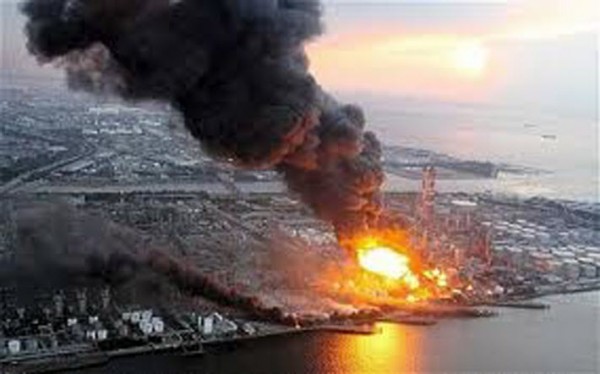U.S. scientists worried about Fukushima radioactive plume — Expert: West Coast our top priority, even over Japan — Alaska Hunter: “We are concerned about our health” — Senator: Testing necessary, but money ‘tight’
Published: February 12th, 2014 at 1:21 pm ET
By ENENews
Email Article Email Article
92 comments
Nome Nugget (pdf), Feb. 7, 2014: The lack of radiation data collected from Alaskan waters worries the public and scientists alike as the plume of radioactive ocean water from the failed Fukushima Dai-Ichi nuclear plant is predicted to arrive on the U.S. West Coast in spring of 2014. […] Despite public worries, no monitoring is done or concerted effort is being made to track seawater or subsistence sources for radiation. […] The lack of data is not comforting […]
Dr. Doug Dasher, Research professor at University of Alaska, Fairbanks: “The public concern is valid and needs to be addressed. We need to gather data in Alaska and not rely on the data coming out of the State of Washington.”
Ken Buesseler, senior scientist at Woods Hole Oceanographic Institution: “There is a disconnect what the government is saying that there are no concerns, but the public is still concerned […] We even have had interest from the public as far away as Japan, New Zealand, Guam, and one sailing vessel traveling from Hawaii to Japan this summer, but the West Coast time series is our highest priority.”
US Senator Mark Begich of Alaska: [He’s] concerned about continued leakage from the power plant and supports efforts to continue to monitor […] spokeswoman Heather Handyside said that the Senator had repeatedly called on the EPA, NOAA and the FDA […] monitoring is necessary, but […] “funding for such research is difficult to find in this tight budget environment.”
Merlin Koonooka, subsistence hunter in Gambel, Alaska: He is very worried about the effects radiation may have on the marine mammals that are a food source for most residents […] “We sure like to see someone out there taking water samples. We are concerned about the health of marine mammals and our own health.”
Gay Sheffield, University of Alaska, Fairbanks Marine Advisory Program agent: “The public is upset […] I am concerned about the lack of data, the lack of a coordinated and comprehensive response between state and federal agencies.” […] this is an issue of food security.
See also: Previously unpublished map from gov’t scientists shows Fukushima plume already at Alaska coast (PHOTO)

